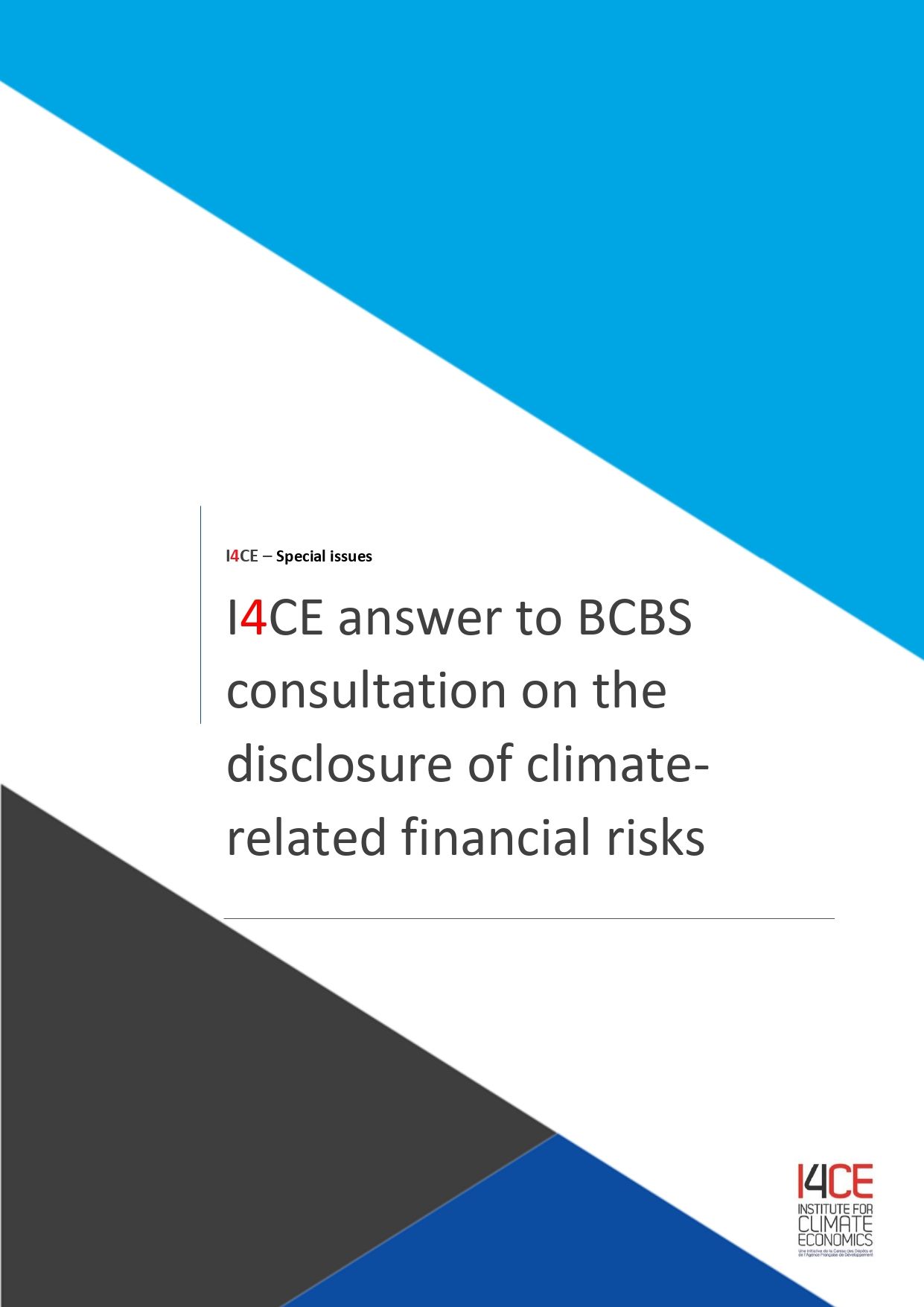I4CE’s recommendations to the Basel Committee on the disclosure of climate-related risks
After a first step in 2022, the Basel Committee on Banking supervision is finally moving towards regulation for climate-related risks. Founded in 1974, this forum brings together financial supervisors of the G20 countries and establishes the common standards for financial stability. Two years ago, the Committee published a consultative document on the principles of climate risk management and supervision. It is now taking further action by moving towards regulation.
This public consultation paper, released in November 2023, aims at integrating climate-related financial risks within the disclosure framework (Pillar 3). As part of this consultation, I4CE’s financial experts addressed their recommendations to the Committee in March 2024.
The Committee is analysing how a Pillar 3 disclosure framework for climate-related financial risks would further its mandate to strengthen the regulation, supervision and practices of banks worldwide with the purpose of enhancing financial stability, and the potential design of such a framework. This work forms part of the Committee’s holistic approach to address climate-related financial risks to the global banking system, which started to emerge in 2022 with a first consultation paper that I4CE had commented on. It also published a consultation paper on a Pillar 2 supervision standard in 2023 and a FAQ on existing Pillar 1 standards in 2022.
I4CE – Institute for Climate Economics strongly supports the Basel Committee on Banking Supervision in its initiative to integrate climate-related risks within Pillar 3 disclosure requirements. This evolution is essential to ensure financial stability and proper functioning of the market in a context of intensification of transition and physical climate risks. Now is time to move from voluntary commitments to regulation to secure global resilience.
I4CE welcomes the work that has been done to improve climate-related management and supervisory practices. I4CE support the current approach of the Basel Committee to gather both quantitative and qualitative information, with a forward-looking vision. On the basis of their understanding of climate-related risks, banks should take action. Their practices should evolve to support the transition of their clients and reduce their risk exposure. This is why I4CE recommends to the Basel Committee to strengthen its qualitative elements on transition plans.



